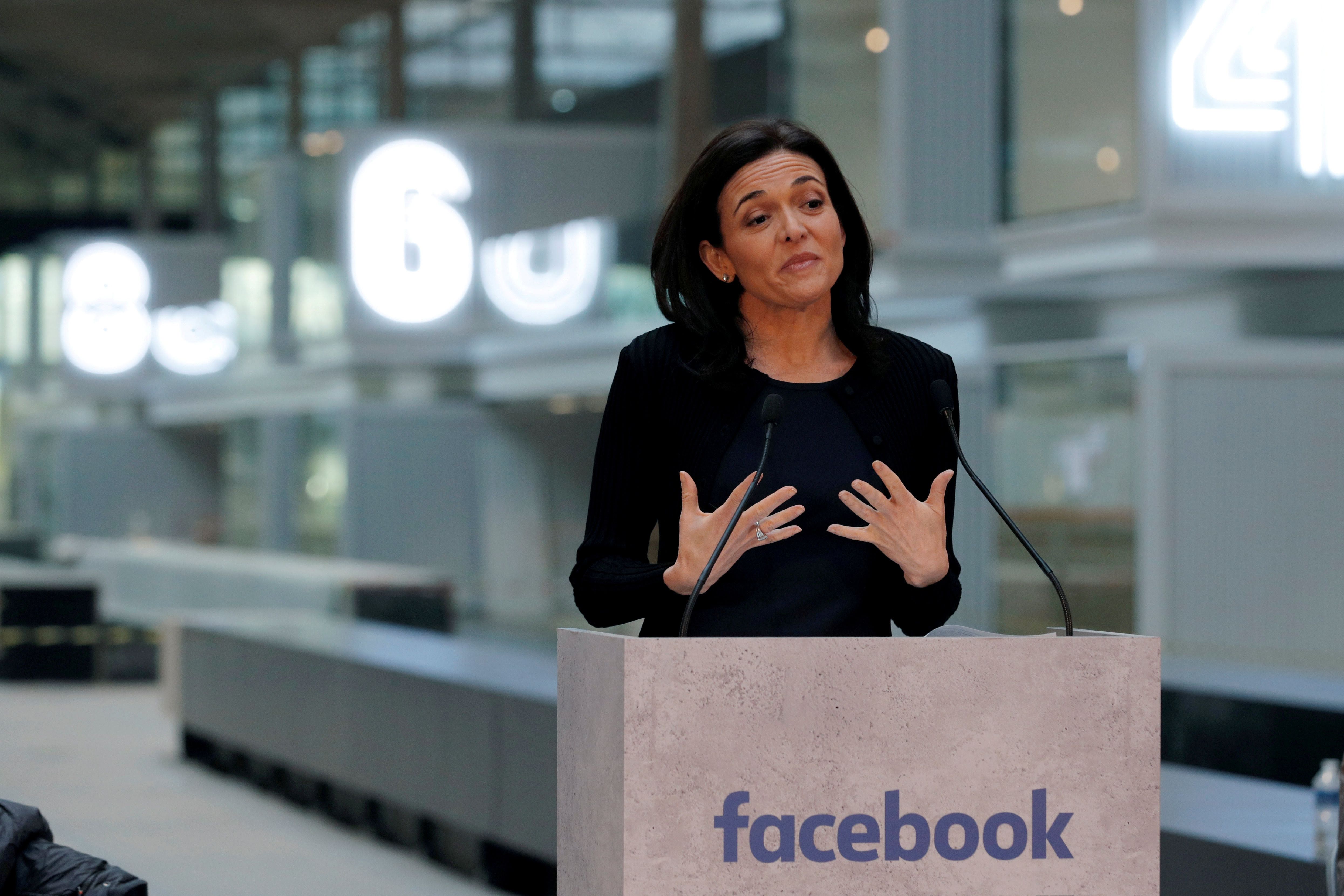Executives from Facebook and Twitter will appear on Capitol Hill today to face questions from lawmakers. Here’s a quick rundown of the most important issues that are likely to come up:
Election interference: In previous hearings, lawyers from Facebook, Google, and Twitter answered questions about how their websites were used to spread Russian misinformation during the 2016 election. This morning, with the November’s midterms looming, Facebook's Chief Operating Officer Sheryl Sandberg (pictured above) and Twitter boss Jack Dorsey will face questions from the Senate Select Committee on Intelligence about what they are doing to avoid a repeat in 2018.The companies will point to the hundreds of accounts they’ve shut down or suspended in recent weeks as evidence that they are committed to protecting the democratic process. They’ll talk about their efforts to improve transparency around who is taking out political ads and clamp down on hate speech and fake news. But on the question of how to prevent future meddling, the likely (unsatisfying) answer is that in a free, open, and increasingly connected society, bad actors will always find new ways to push propaganda. The best the tech industry and government can do is try to manage it.
The echo chamber: The tendency for people to seek out online news and views that merely serve to reinforce their own biases is another big issue facing the US and other democracies around the world. Twitter CEO Jack Dorsey may be in for a particularly rough ride on this topic in a solo appearance before the House Energy and Commerce committee after lunch. Many Republicans – including President Trump – believe Twitter and other social networks suppress conservative viewpoints. For them, the main problem with the echo chamber is that it threatens free speech. For many Democrats, by contrast, the echo chamber is contributing to an unhealthy civil discourse. It’s hard for democracies to make well-informed decisions when facts get lost in partisan noise.
Dorsey will face tough questions from Republican committee members who know the bias issue resonates with their base. Democrats, meanwhile, will push the Twitter boss on the company’s policies for banning fake news and hate speech, while trying to paint their opponents’ questions about anti-conservative bias as an attempt to muddy the waters around the Mueller probe and other issues that are likely to hurt Republicans’ chances in the midterms. Dorsey will offer statistics, verbal assurances and technical explanations of how Twitter determines whose Tweets get read by whom, and how the platform tries to promote a “healthy public conversation” without favoring one viewpoint over another. But in an ironic turn of events that will surprise no one, committed partisans will only hear what they want to hear.
Regulation: Should internet platforms be regulated like publishing companies? Like public utilities? Or should they be broken up? Those are just a few of the ideas for tightening government control over the tech sector circulating on various sides of the aisle on Capitol Hill that may get airtime today. The drumbeat in favor of increased regulation is growing stronger. Recent headlines out of Myanmar, Libya, and China have shown that the challenges facing tech giants go beyond foreign meddling in US elections, and touch on broader questions of how to make a powerful, virtual public square created by private sector tech companies safe for people around the world. Today’s hearings will shape how this important debate unfolds through the 2018 US midterms, and beyond.
